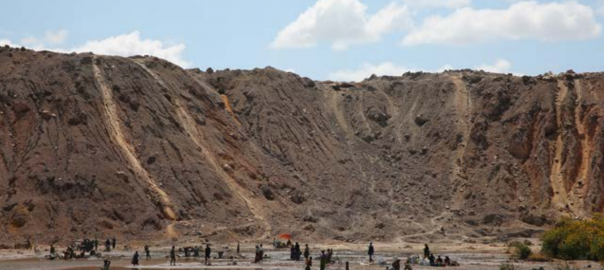A new report by Amnesty International has uncovered human rights abuses by one of the world’s leading cobalt producers in the Democratic Republic of Congo (DRC).
Zhejiang Huayou Cobalt Ltd, a mining group partly owned by the Chinese government, has been accused of selling cobalt sourced from child labor into major battery production facilities in China, Japan and South Korea.
From these facilities, batteries were traced into the supply chains of major technology and auto companies including Apple, Samsung, Sony and Volkswagen, among others.
While it is unsurprising that production from the DRC – a war-torn country where an estimated 40,000 children worked in mines in 2014 – was found to be in violation of international laws, what is more pertinent is the lack of awareness of multi-billion dollar consumers.
Of the 16 multinational consumer brands outlined as either direct or indirect customers, none are said to have traced how they source their cobalt.
The allegations serve as further indication of the difficulties major battery companies are facing in dissecting their increasingly complex supply chains.
Source: Amnesty International [click on image to view larger version]
Artisanal mining has been a major issue in the DRC for a number of decades, leading to the introduction of Section 1502 of the Dodd-Frank Wall Street Reform and Consumer Protection Act in the US in 2010.
This act forced greater scrutiny of the supply chains and identified tantalum, tin, tungsten and gold as conflict minerals. However, the legislation failed to acknowledge cobalt – mined as a by-product of copper and nickel – as a conflict mineral.
Accounting for over 60% of the world’s mined cobalt material, the DRC has become an integral cog in the rapidly evolving supply chain for battery raw materials.
With demand for cobalt from the lithium ion battery sector increasing three-fold in the last five years alone, supplies are forecast to tighten over the coming years with the adoption of electric vehicles and utility storage solutions.
Most of the major lithium-ion technologies being developed by battery majors such as Panasonic and LG Chem require some level of cobalt additive in the cathode.
If these companies are going to meet the demand for batteries in our smartphones and electric vehicles over the coming years, greater supply chain visibility will be required – to protect not only the future of the industry, but the fate of the miners bringing these materials to market.
Mark Dummet (Amnesty International), author of ‘This is what we die for: Human Rights Abuses In The Democratic Republic Of The Congo Power The Global Trade In Cobalt’ will be writing an exclusive feature on artisanal mining in Benchmark’s Q1 2016 magazine.
Download Benchmark Issue 4 here
For subscription or advertising enquiries, please contact: info@benchmarkminerals.com
Read more at the original source: http://benchmarkminerals.com/Blog/cobalt-brings-tech-giants-supply-chains-into-the-spotlight/

